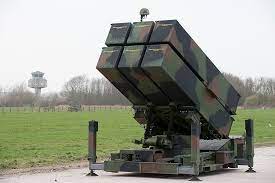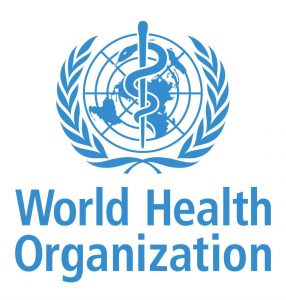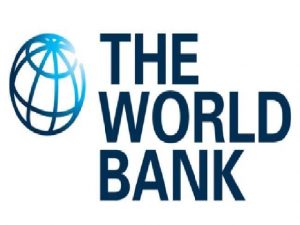Today’s Current Affairs: 25th May 2023 for UPSC IAS exams, State PSC exams, SSC CGL, State SSC, RRB, Railways, Banking Exam & IBPS, etc
Table of Contents
National Advanced Surface-To-Air Missile System:

The United States recently announced the approval of a $285 million sale of a NASAMS air defense system and related equipment to Ukraine.
- NASAMS (National Advanced Surface-to-Air Missile System) is a medium-range ground-based air defense system.
- It is designed to engage air targets at low and medium altitudes in all weather conditions.
- It was designed and developed jointly by Raytheon (United States) and Kongsberg Defence & Aerospace (Norway).
- It is used by Norway, the United States, Canada, Chile, Finland, Indonesia, Netherlands, Oman, Qatar, Spain, the United Kingdom, and Ukraine.
- It is best suited to defend important stationary assets, such as key military assets, infrastructure, or cities.
- It has been integrated into the S. National Capital Region’s air defense system since 2005.
- It is the world’s first networked short- and medium-range air defense system that could integrate with other equipment and air defense systems.
- It features an X-Band, 360-degree phased array air defense radar with a 75-kilometer range to identify targets.
- The NASAMS is armed with three launchers, each carrying up to six missiles.
- The system can engage 72 targets simultaneously in active and passive modes.
- It uses AIM-120 AMRAAM air-to-air missiles, which have been modified for ground launch and have an engagement range of about 30 kilometers.
76th World Health Assembly:

Union Minister of Health and Family Welfare delivered the keynote address at a side event session on “Heal in India & Heal by India” at the 76th World Health Assembly, in Geneva.
- Heal by India’ initiative is designed with an intent to increase health workforce mobility from India to different parts of the world to serve the world as per the Indian Philosophy of ‘Vasudhaiva Kutumbakam’ i.eThe World is One Family
- ‘Heal in India’ initiative seeks to provide “integrated and holistic treatment” to the world in India and enhance patient mobility for access to world class, affordable and quality healthcare services”.
World Health Organization (WHO):
- WHO is a specialized agency of the United Nations responsible for international public health.
- It is headquartered in Geneva, Switzerland.
- It was established in 7 April 1948, which is commemorated as World Health Day.
- The agency leads global efforts to expand universal health coverage and direct and coordinate the world’s response to health emergencies.
- The World Health Assembly (WHA), composed of representatives from all 194 member states, serves as the agency’s supreme decision-making body.
- Funding: Voluntary donations from member states.
Two Day National Workshop : National e-Vidhan Application

Ministry of Parliamentary Affairs is set to organize a two-day National Workshop on the National e-Vidhan Application (NeVA) on 24th & 25th of May, 2023 in New Delhi
- The objective of this move is to encourage the legislatures of all states and union territories to move towards the NeVA platform and bring in transparency, accountability and responsiveness in their conduct of house business through the use of technology.
- It is the second workshop. The first workshop was organised in September 2018.
- National e-Vidhan Application is one of the 44 Mission Mode Projects (MMPs) under the “Digital India Programme” of Government of India.
- Aim is to make the functioning of all the State Legislatures paperless by transforming them into ‘Digital House’.
- It is a device neutral and member centric application created to equip them to handle diverse House Business smartly by putting entire information regarding member contact details, rules of procedure, notices, bills, starred/unstarred questions and answers, committee reports etc. in their hand held devices/ tablets.
- Till now, 21 State legislatures have signed Memorandum of Understanding for implementation of the NeVA and the project has been sanctioned for 17 Legislatures.
- Among them, 9 Legislatures have already become fully digital and are Live on NeVA platform.
- Nodal Ministry: Ministry of Parliamentary Affairs.
Practice Of Forum Shopping:

The Chief Justice of India (CJI) has condemned the practice of Forum Shopping after a litigant mentioned the hearing before CJI although he had mentioned the same case a day before another Judge.
- Forum shopping refers to the practice of deliberately choosing a specific court for a legal case in the hope of getting a favorable outcome.
- Litigants and lawyers often consider this strategy as part of their litigation plan.
- It can allow plaintiffs to seek justice and compensation in a court that is more sympathetic to their claims or interests.
- It can encourage competition and innovation among courts and judges to improve their efficiency and quality of service.
- Forum shopping has been criticized by judges because it can lead to injustice for the opposing party and create an imbalance in the workload of different courts.
- Judges have cited the overburdening of some courts over others and interfering with judicial process.
- It can undermine the authority and legitimacy of courts and judges by creating perceptions of bias or favoritism.
- It can increase the costs and complexity of litigation by creating conflicts of laws and multiple proceedings.
Angel Tax : Exemption

The Central Board of Direct Taxes (CBDT) has announced a proposal to exempt certain categories of investors from the levy of angel tax.
- The move aims to encourage investments in start-ups and ease the burden of taxation.
- Additionally, the CBDT has introduced five new valuation methods for resident investors, expanding the options beyond the Discounted Cash Flow (DCF) and Net Asset Value (NAV) methods.
- The CBDT has outlined several categories of investors that will be exempted from the angel tax.
- These include:
- Government and government-related investors, such as central banks, sovereign wealth funds, and international or multilateral organisations, or where ownership of the government is 75% or more.
- Banks or entities involved in the insurance business.
- Entities registered with SEBI as Category I Foreign Portfolio Investors (FPI), endowment funds, and pension funds.
- Broad-based pooled investment vehicles or funds where the number of investors is more than 50 and such fund is not a hedge fund too are exempt.
- Hedge funds pool money from investors and invest in securities or other types of investments with the goal of getting positive returns.
Angel Tax:
- The provision known as the ‘angel tax’ was initially introduced in 2012 to discourage the generation and utilisation of unaccounted money through investments in closely held companies.
- It is the tax that must be paid on the funds raised by unlisted companies through the issuance of shares in off-market transactions, if they exceed the fair market value of the company.
- Fair market value (FMV) is the price of an asset when buyer and seller have reasonable knowledge of it and are willing to trade without pressure
Thriving: Making Cities Green, Resilient, And Inclusive In a Changing Climate : World Bank Report

A recent report by the World Bank titled “Thriving: Making Cities Green, Resilient, and Inclusive in a Changing Climate” provides guidance to local and national policymakers on how to create greener, more resilient, and inclusive cities.
Status of Cities in terms of their greenness, resilience, and inclusiveness:
- Cities in North America are among the largest per capita emitters of greenhouse gases.
- Cities in Bangladesh and India are more vulnerable to floods, heat stress, and cyclones, resulting in severe economic consequences.
- Cities in low- and lower-middle-income countries often struggle with inadequate access to healthcare, education, and essential utilities such as water and electricity.
- Delhi, Kanpur, Patna etc. have experienced high levels of PM2.5, especially during the winter season
- New York City, have higher population density and economic activity compared to cities with sprawled development.
- Cities like Tokyo, with limited green spaces, face higher temperatures during heat waves due to the lack of vegetation and increased heat retention.
Five sets of instruments to improve the greenness, resilience, and inclusiveness of cities :
5I”s:
- Information Policies and measures to provide credible and timely information to individuals, businesses, and local governments about climate change risks, mitigation and adaptation measures Establishing a climate change information centre to provide climate risks data specific to their city.
- Incentives : It includes removing subsidies that encourage activities with negative environmental externalities, Implementing tax incentives or rebates for installing energy-efficient technologies FAME I and II scheme, EU’s Carbon Border Adjustment Mechanism (CBAM)
- Insurance Developing climate risk insurance schemes that provide coverage for businesses and households against losses from extreme weather events, encouraging investment in climate-resilient infrastructure and enabling quick recovery.
- Integration Policy interventions promoting compact cities and better integration between urban and rural areas; Developing efficient public transportation networks that connect urban and rural areas E.g., Smart City mission, PURA Scheme.
- Investments: Investments by national and local governments in green, resilient, and inclusive urban infrastructure. This includes nature-based solutions and measures to attract private-sector finance for sustainable development. Allocating funds for the construction of green buildings, renewable energy projects, and urban parks.
People’s Biodiversity Register:

The National Campaign for Updation and Verification of People’s Biodiversity Register (PBR) was launched in Goa, by the Ministry of Environment, Forest and Climate Change.
- It is aimed to document and preserve India’s rich biological diversity.
- The People’s Biodiversity Register serves as a comprehensive record of locally available Bio-resources including the landscape and demography of a particular area or village.
- It is prepared by Biodiversity Management Committees (under Biodiversity Act 2002) in consultation with local communities.
- Biodiversity Management Committees are local bodies created under the Biological Diversity Act 2002, with the mandate to ensure the conservation, sustainable utilization and equitable sharing of benefits from biodiversity.
- The act has made it mandatory for every local self-governing institution in rural and urban areas to constitute Biodiversity Management Committees within their area of jurisdiction.
- BMC must prepare a PBR in consultation with local people.
- Kolkata was the first major metropolitan city in India to make a detailed People’s Biodiversity Register (PBR).
Sengol : Historical Sceptre

A historical sceptre from Tamil Nadu ‘Sengol’ will be installed at the new Parliament building to be inaugurated by by Prime Minister Narendra Modi on May 28.
- Sengol was used on August 14, 1947, by then Prime Minister Jawaharlal Nehru when the transfer of power took place from the British.
- It was kept in a museum in Allahabad.
- The word Sengol is derived from the Tamil word ‘Semmai’, meaning ‘righteousness’.
- It is a civilisational practice from the Chola kingdom, which was among the leading kingdoms in the Indian sub-continent for centuries.
- According to Tamil tradition, a high priest presents a sceptre to a newly crowned king as a symbolic gesture of power transition.
- The one accorded the ‘sengol’ is expected to impart a just and impartial rule.
- C Rajagopalachari, the last Governor General of India, suggested that this tradition, observed by the Chola dynasty, could serve as a significant symbol of India’s freedom from British rule.
- The ‘Sengol’ was crafted by a renowned jeweller in Madras Vummidi Bangaru Chetty.
- This impressive sceptre measures five feet in length and features a ‘nandi’ bull at the top, representing the concept of justice.




